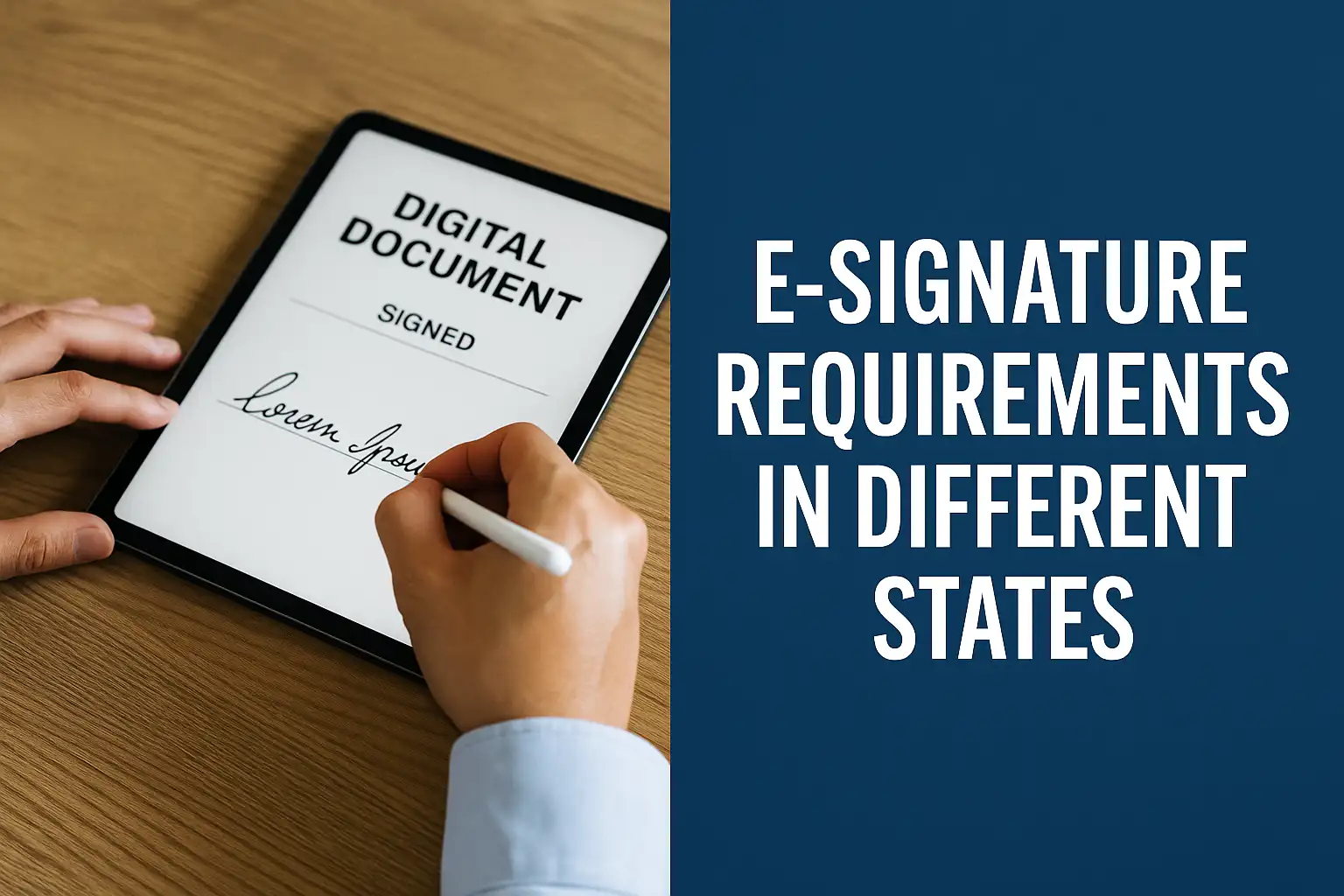
Understanding E-Signature Requirements: What Businesses Need to Know
Disclaimer: We are not attorneys, and nothing in this article should be considered legal advice. We are software developers with practical experience building systems that handle e-signatures. If you have legal questions about e-signatures, consult a qualified attorney licensed in your jurisdiction.
Why E-Signatures Matter for Modern Businesses
Paper contracts are quickly becoming outdated. In today’s digital-first world, businesses need fast, secure, and legally recognized ways to capture signatures. E-signatures (or electronic signatures) are now widely accepted across the U.S., thanks to laws like the ESIGN Act (Electronic Signatures in Global and National Commerce Act) and state-level adoption of the UETA (Uniform Electronic Transactions Act).
If you run a business that collects waivers, contracts, or recurring agreements (like a gym or fitness studio), you need to know how electronic signatures hold up legally and what requirements exist in different states.
At ManageMemberships, we’ve built our platform to meet or exceed practical standards for e-signature validity. We store:
- The exact version of the document signed, even if the template is later updated.
- A snapshot of the agreement at the moment of signing.
- The IP address and timestamp for every signature event.
These safeguards help ensure that, if challenged, we can prove not just that a signature was captured, but what was signed and when.
Federal Law: The ESIGN Act
The ESIGN Act, passed in 2000, ensures that electronic signatures are legally valid for most transactions across the U.S. Key points include:
- An electronic signature is valid if the signer intended to sign and the system can associate the signature with the record.
- Consumers must consent to use electronic records instead of paper.
- Signed records must be retained in an unaltered form and be accessible for reference.
More details on the ESIGN Act are available from the FTC.
State-Level E-Signature Laws: UETA
Most states have adopted some version of the UETA, which complements the ESIGN Act. UETA provides a framework for electronic contracts, ensuring that e-signatures have the same legal weight as handwritten signatures when the parties agree to use electronic forms.
However, not all states are identical in their adoption. A few states (like New York and Illinois) have their own versions of e-signature laws that differ slightly from the UETA model.
E-Signature Requirements in Illinois
As of June 25, 2021, Illinois follows the Uniform Electronic Transactions Act (UETA), aligning with nearly every other U.S. state. The prior law, the Electronic Commerce Security Act (ECSA), was repealed and replaced by UETA under 815 ILCS 333.
Under UETA, Illinois law:
- Recognizes electronic signatures and records as legally valid, so long as all parties agree to transact electronically.
- Requires clear intent to sign, and that the signature is logically associated with the relevant document.
- Allows simple electronic signatures (like typing a name or clicking “I Agree”) as valid, as long as they demonstrate intent and consent.
- Does not require encryption or digital certificates, but allows their use where higher assurance is needed.
You can read the full Illinois UETA law here:
Illinois Compiled Statutes – 815 ILCS 333
Kentucky E-Signature Requirements
Kentucky follows the Uniform Electronic Transactions Act (KRS 369.101–369.120). Key takeaways:
- Electronic signatures and records are valid if both parties consent to transact electronically.
- A signature is considered valid if it is attributable to a person and logically associated with the record.
- Exceptions apply, such as wills, trusts, or certain real estate documents, which still require traditional signatures.
More details are available in Kentucky’s UETA Statute.
Other State Considerations
While most states follow UETA, a few states have unique requirements:
- New York: Uses the Electronic Signatures and Records Act (ESRA). It grants electronic signatures the same legal effect as handwritten ones for most contracts. See New York ESRA.
- California: Has adopted UETA, but with specific carve-outs for documents like wills and codicils. For certain transactions (e.g., real estate), California also permits electronic notarization.
- Washington: Was the first state to pass e-signature legislation in 1998. It now follows a version of UETA.
- Texas and Florida: Both states have adopted UETA with minor variations.
When E-Signatures Are Not Valid
Even with the ESIGN Act and UETA, some documents still require wet-ink signatures by law, including:
- Wills, codicils, and testamentary trusts.
- Certain family law documents (e.g., adoption papers).
- Negotiable instruments (like certain promissory notes).
- Certain real estate documents, unless e-notarization is explicitly allowed.
How ManageMemberships Handles E-Signatures
Our platform is built with practical compliance and record integrity in mind. While we don’t claim to be a legal authority, we’ve designed our systems to support key requirements for e-signature validity:
- Snapshot of Signed Agreements:
We store the exact version of the waiver or contract at the time of signing, so even if you update your terms later, the original signed copy remains unaltered. - Time & Location Tracking:
Every signature event is logged with a timestamp and IP address to provide a verifiable audit trail. - Signer Intent:
Our workflow ensures the signer takes deliberate steps (e.g., checking boxes, clicking a "Sign and Agree" button) to show clear intent. - Association:
The captured signature is digitally linked to the stored version of the document, preventing confusion or tampering.
Best Practices for Using E-Signatures
If you’re implementing e-signatures in your business (with or without ManageMemberships), here are some tips:
- Always confirm consent: Let users know they are signing electronically.
- Use secure access: Require logins, PINs, or unique identifiers for sensitive contracts.
- Keep an audit trail: Store metadata like date, time, and IP address.
- Maintain version control: Never overwrite signed agreements; keep a copy of exactly what was signed.
- Check local laws: If you operate in multiple states, make sure you’re aware of any unique requirements (especially for states like Illinois or New York).
Helpful Resources
- FTC Guide to the ESIGN Act
- Uniform Law Commission – UETA Overview
- Illinois ECSA – Full Text
- Kentucky UETA Statutes
Closing Thoughts
E-signatures are now a critical part of doing business, but they’re only as valid as the process behind them. The technology needs to show that the signer intended to sign, the record hasn’t been altered, and that all parties agreed to transact electronically.
At ManageMemberships, we take this seriously by preserving exact document versions, capturing IP addresses and timestamps, and ensuring signer intent is clearly documented. While we are not lawyers, our goal is to provide tools that meet practical and widely accepted standards for electronic signature validity.

